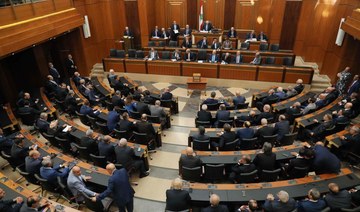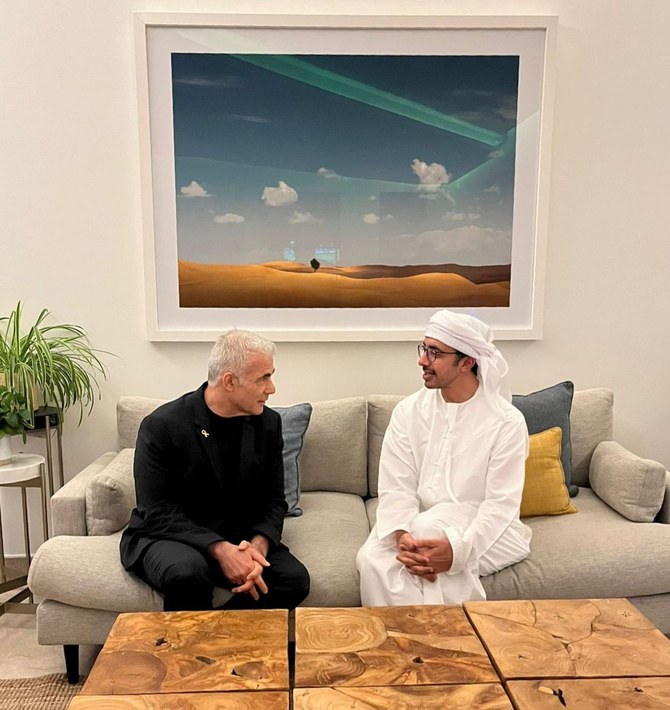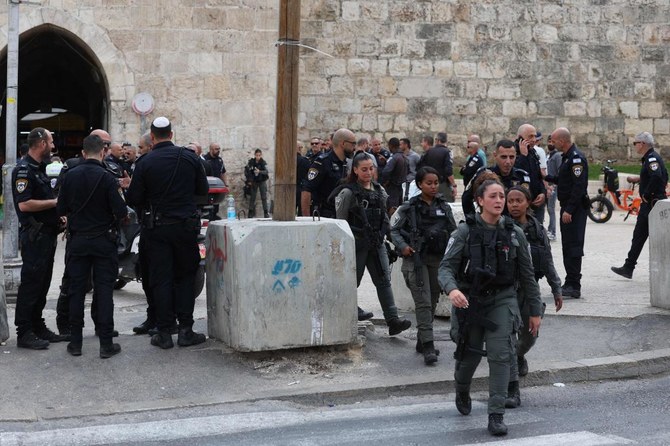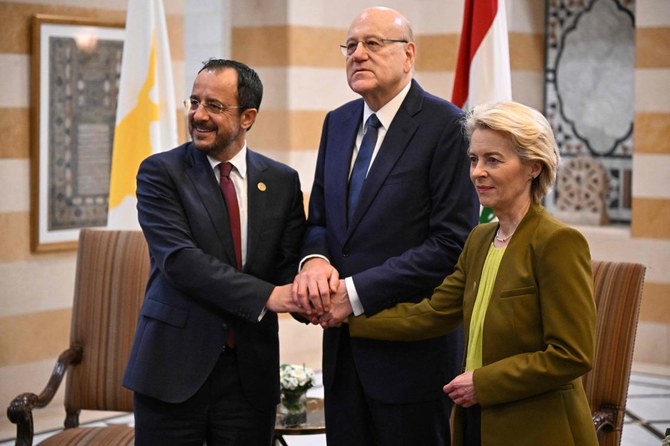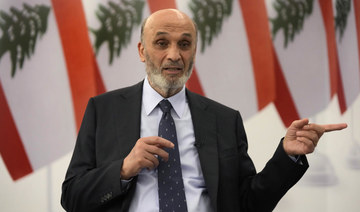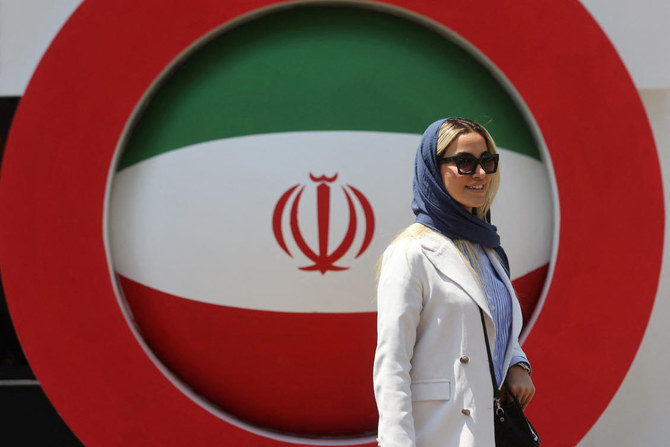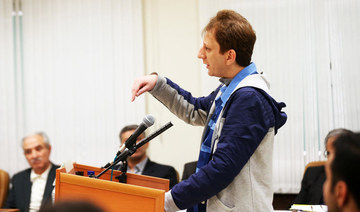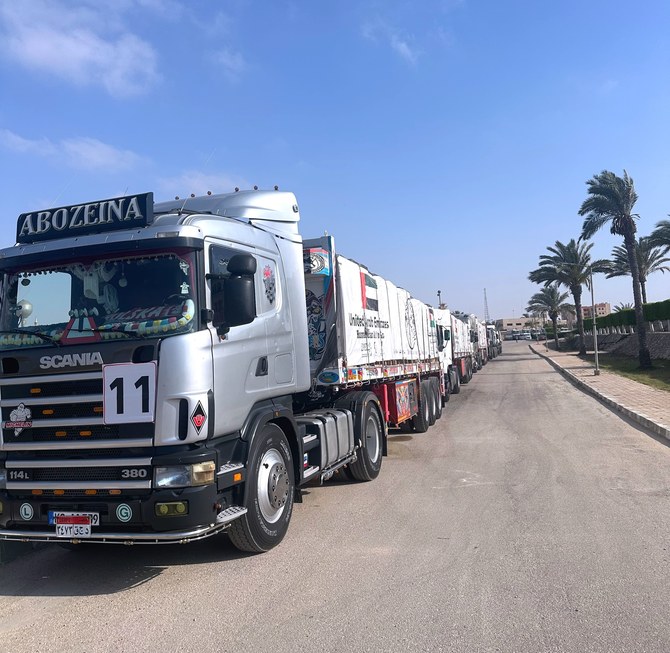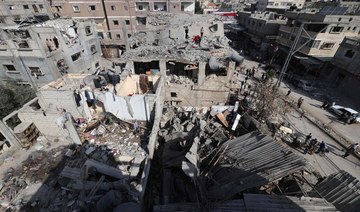BEIRUT: Lebanon’s parliament failed on Monday, for a fourth time, to elect a successor to President Michel Aoun, as MPs remained divided over a candidate opposed by the Hezbollah movement. Aoun’s term in office expires next Monday, Oct. 31.
Fifty MPs in Lebanon’s 128-seat parliament, including many from Iran-backed Hezbollah and its allies, left their ballots blank and withdrew from the session, as a result of which the quorum was not met. Nabih Berri, the parliament’s speaker, called another vote for Thursday in the hope of ending the long-running arguments and overcoming the stalemate.
Hezbollah and the Amal Movement advocated for talks between MPs and parties to agree a consensus president. However, some opposition MPs viewed this suggestion as anti-democratic and an attempt to turn the parliament into a version of Afghanistan’s “loya jirga,” an assembly of leaders that makes decisions by consensus to resolve disputes.
Out of the 128 MPs, 114 were present for the first round of voting on Monday. Michel Mouawad, who is head of the Independence Movement, has emerged as a front-runner since parliament first met last month to choose a new president. He is considered anti-Hezbollah and the candidate of the opposition parties: the Progressive Socialist Party, the Lebanese Forces, Kataeb and independent MPs.
On Monday, he maintained a similar number of votes to what he received in the previous poll: 39 votes, compared with 42 last time. Seven MPs who were present during the previous vote were absent this time.
Academic Issam Khalife was another notable candidate, securing 10 votes, while 13 MPs voted for “New Lebanon.” Two votes were declared void, one of which had been marked with the word “condolences” as a comment on the situation, a sentiment more usually expressed at a funeral.
Several Change MPs and independent MPs backed Khalife but some Change MPs refused to vote for him, revealing the extent of disagreements between members of the bloc.
The quorum required for the election was lost when the results of the first round of voting votes were announced and it it seemed that MPs representing Hezbollah and the Amal Movement, and some members of the Free Patriotic Movement, would leave the session because they reject candidates they describe as “provocative.” They have not nominated their own favored candidate, however, and instead so seemed content to leave their ballots blank.
MP Hadi Abu Al-Hosn, a member of the Democratic Gathering bloc, said: “It is about time we left absurdity behind because after the session (tentatively) scheduled for Thursday we will be facing a deadlock.”
Alain Aoun of the FPM said: “Whoever cast blank ballots is calling for dialogue and consensus, and whoever bets that they would win the presidency must know that the election of the president is achieved by securing consensus among all.”
Front-runner Mouawad said that a dominant authority is attempting to blackmail MPs and the Lebanese people by disrupting sessions to ensure it maintains its parliamentary quotas.
He added that the type of consensual candidate that some parties are seeking would have to submit his credentials to Hezbollah for approval and “if we accept this approach, this means that we are not offering anything to improve the lives of the Lebanese” people.
Hezbollah wants a president who is submissive to the party and will continue to isolate Lebanon, Mouawad said, adding: “I will not submit my credentials to Hezbollah or the FPM to satisfy them.”
An unnamed Hezbollah MP said casting a blank ballot is a democratic right but added that the party wants to elect a president and is open to dialogue.
George Adwan, vice-president of the Lebanese Forces, criticized Hezbollah’s call for a talks on a president. He said that disputes with Hezbollah about the democratic process are based on the constitution, legislation and the party’s uncontrolled access to weapons. He added that solutions would become possible if Hezbollah agrees on the principles of state authority, the constitution, legislation and the rejection of any weapons that are not under state control.
There is an existing democratic process follow and it does not need additional dialogue, said Adwan.
“We have made our decision and everyone should make theirs,” he added.
Saydet El-Jabal Gathering, an anti-Hezbollah bloc that includes dozens of politicians and activists, said that by calling for open dialogue between parliamentary blocs and party leaders Hezbollah is simply trying to force through the selection of a candidate that the party chooses or approves of.
The Gathering also noted that MPs must ensure a quorum is maintained that allows a new president to be elected. The problem is not the absence of a constitutional mechanism to elect a president but the disruption of this mechanism by preventing a quorum, the bloc said. They added that the parliament’s speaker should put pressure his bloc and their allies to make sure the quorum is met.
“Does the speaker want to turn parliament into a council of tribes, a loya jirga in the Afghan way?” they asked.




